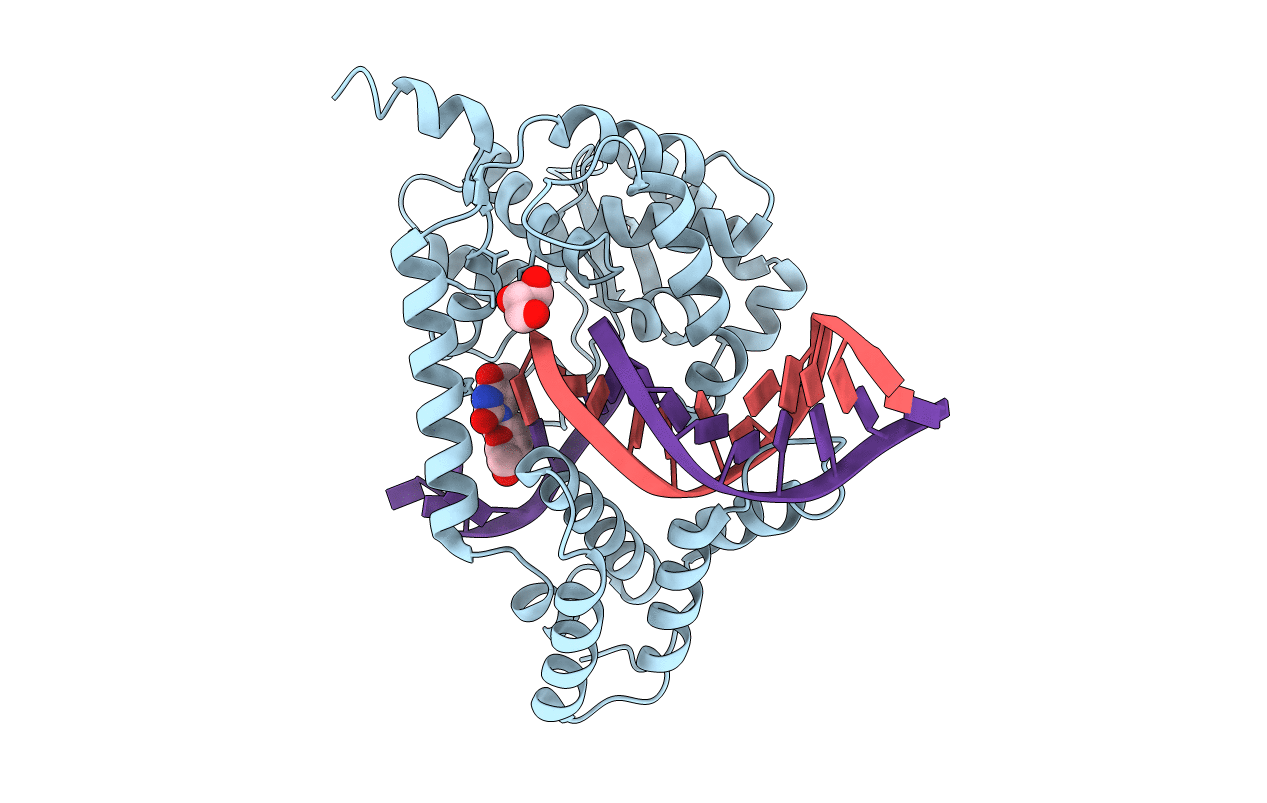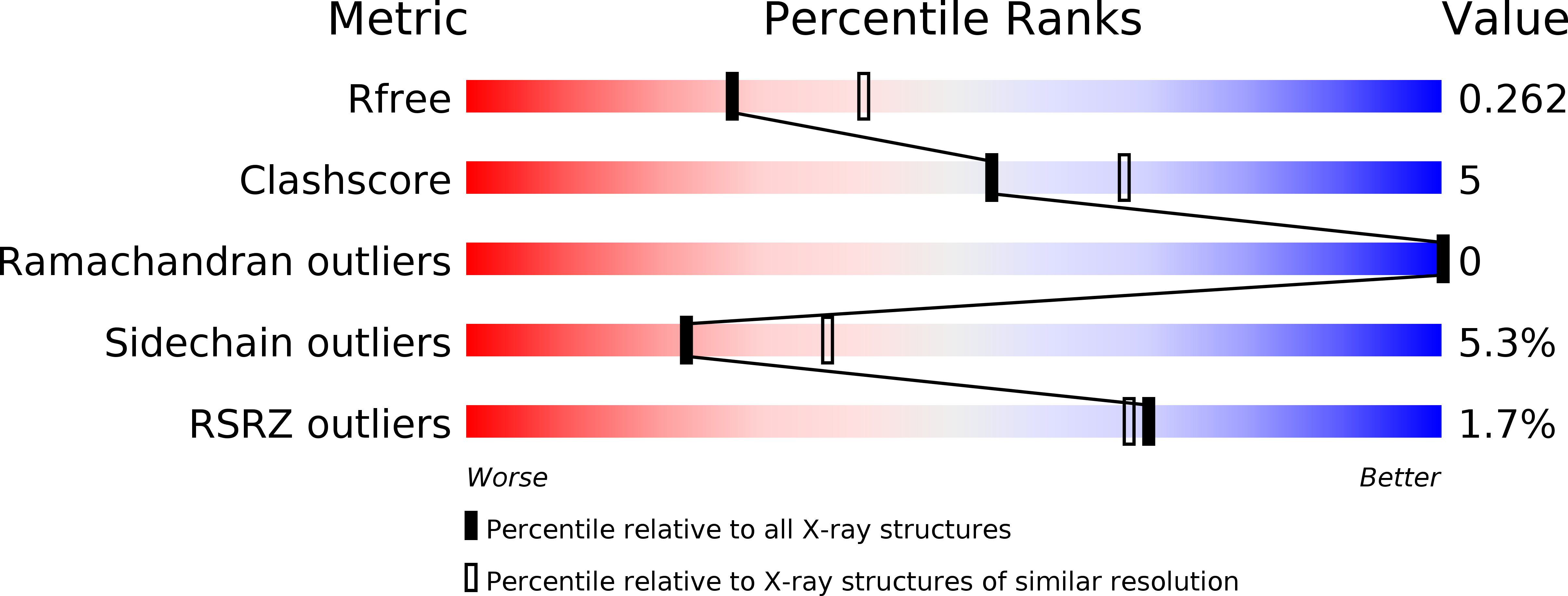
Deposition Date
2012-03-05
Release Date
2013-02-13
Last Version Date
2025-02-12
Entry Detail
PDB ID:
4E0Y
Keywords:
Title:
Protelomerase tela covalently complexed with mutated substrate DNA
Biological Source:
Source Organism(s):
Agrobacterium tumefaciens (Taxon ID: 176299)
Expression System(s):
Method Details:
Experimental Method:
Resolution:
2.40 Å
R-Value Free:
0.26
R-Value Work:
0.21
R-Value Observed:
0.21
Space Group:
C 1 2 1


